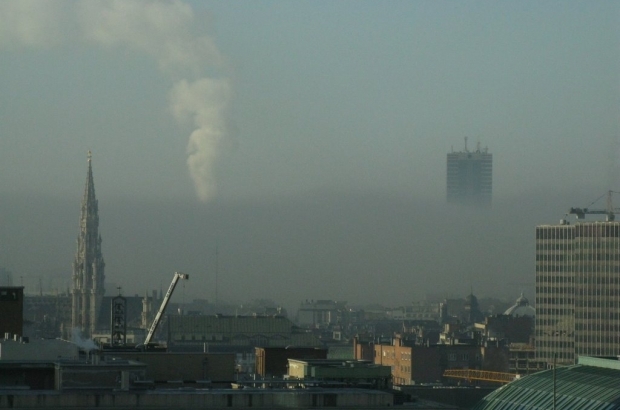- Daily & Weekly newsletters
- Buy & download The Bulletin
- Comment on our articles
Brussels to adopt new initiatives for improving air quality
Brussels will be adopting a series of new initiatives aimed at improving air quality in the city, which is one of the most polluted European capitals.
New measures intended to curb the problem include an incubator for innovation in low-emission urban logistics, training, educational awareness-raising, an impact analysis of Low Emission Zones (LEZ) on health, and the development of a real-time and forecasted mapping of nitrogen dioxide (NO2) levels.
The initiatives are being untaken with support from the Bloomberg Philanthropies Foundation.
“Air pollution threatens our health and that of our planet. It is our duty to do everything we can so that the people of Brussels can breathe clean air and live in a healthy environment,” said environment minister Alain Maron.
“The solutions are collective and therefore rely on the contributions of a wide range of people. Thanks to the continuation of our partnership with Bloomberg Philanthropies, we are taking concrete action on our mobility to make it more sustainable so that everyone can get around easily without polluting.”
Urban actions will primarily focus on streets with schools and dense neighbourhoods. A number of organisations are involved in the Brussels Clean Air Partnership, including Les Chercheurs d'Air, Pro-vélo, Mutualiteiten Liberale, VUB, KU Leuven, the Health and Environment Alliance and VITO.
After a successful first phase that began two years ago, the partners are expanding the initiative to support new research and action programmes that contribute to the transition towards sustainable urban mobility.
In the first phase, 60 schools and 3,000 Brussels residents and organisations measured the air quality in their neighbourhoods – the largest citizen science exercise in Brussels to date.
Analysis of those measurements showed that World Health Organisation guidelines were exceeded in many neighbourhoods, particularly in the city centre and densely populated areas.
The emissions of more than 130,000 vehicles in traffic were also measured, showing that, among other things, nitrogen oxide emissions are up to five times higher than approved limits.
According to the European Environment Agency, air pollution causes more than 400,000 premature deaths in Europe each year, including almost 9,000 in Belgium alone.
At the root of the problem is car traffic. Goods transport in Brussels is currently mainly by road, with 16,000 lorries and 26,000 delivery vans travelling through the city each day.
While freight transport only accounts for 17% of traffic, it is responsible for 28% of PM2.5 (particulate matter) in the air, 34% of nitrogen oxide emissions and around 25% of traffic-related CO2 emissions.
“Air pollution kills hundreds of thousands of people in Europe every year,” said Michael R. Bloomberg, who serves as a special envoy to the UN.
“By expanding our partnership with the Brussels region, we will help regional leaders have the tools they need to target and reduce air pollution, fight climate change and save lives.”
The NO2 mapping project will be handled in part by VUB with a goal of modelling potential public space redevelopment projects’ impact on air quality.
“The transport of goods costs public health around €60,000 every day,” explained VUB’s Cathy Macharis.
“Our children and elderly people are the most affected by air pollution from freight transport in Brussels. Companies are already doing a lot, [but] with the support of Bloomberg Philantropies, we can give further impetus to innovative collaborations that can significantly reduce the impact of logistics on our health.”



















